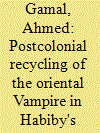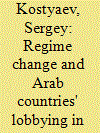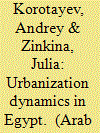|
|
|
Sort Order |
|
|
|
Items / Page
|
|
|
|
|
|
|
| Srl | Item |
| 1 |
ID:
116669


|
|
|
|
|
| Publication |
2013.
|
| Summary/Abstract |
The purpose of this article is to outline Denys Johnson-Davies's translation career as told in his autobiography, give a general appreciation of his unparalleled role in translating and promoting Arabic literature in the English-speaking world, shed light on his adapting numerous Arabic folktales for children, and touch upon his translations of canonical Islamic texts. However, it would not be possible to fully appreciate his monumental contributions in this intercultural dialogue without examining, albeit briefly, some of the intractable odds against which he strove. In other words, had he been a French- or German-English translator, his would have been a completely different story, and perhaps not worth being voluble about. To achieve this goal, I will highlight certain relevant incidents in his career that illustrate both his tireless efforts and his attachment to Arabic literature, Arab authors, and Arab customs, for it is through this "spiritual affinity" that Johnson-Davies fulfills Schlegel's condition for a good authentic translation.
|
|
|
|
|
|
|
|
|
|
|
|
|
|
|
|
| 2 |
ID:
116667


|
|
|
|
|
| Publication |
2013.
|
| Summary/Abstract |
This article examines Emile Habiby's Saraya, The Ghoul's Daughter (1991) and Bharati Mukherjee's Jasmine (1989) as two postcolonial novels seeking to rewrite the history of Palestinian and Indian diaspora according to their respective myths of Oriental vampires. Habiby's recycling of the Palestinian folktale of the ghoul and Mukherjee's recuperation of the Hindu myth of Lord Shiva aim to spotlight the classical vampiric topoi of otherness, unspeakableness, foreignness, and border existences in colonial and postcolonial contexts. Postcolonial Gothic writing is thus shown to foreground gender, nationality, and ethnicity as sites of both power conflict and cultural exchange. Adopting a counter-Orientalist approach, the study sheds light on the different strategies these two postcolonial texts employ to deconstruct the demonic and ghostly constructions of Arabs and Indians.
|
|
|
|
|
|
|
|
|
|
|
|
|
|
|
|
| 3 |
ID:
116670


|
|
|
|
|
| Publication |
2013.
|
| Summary/Abstract |
In this article lobbying by several Arab countries in the United States is analyzed to answer two questions: What are the ramifications of a regime change for lobbying strategy in the United States? Does lobbying matter in securing US government support? First, the study demonstrates that regime change in Tunisia, Egypt and Libya has had no effect on their lobbying in the United States so far. The analysis of lobbying by countries which eschewed regime change-Bahrain, Saudi Arabia, and Pakistan-surprisingly comes to the same conclusion. Second, the ability of troubled regimes to peacefully control their own populace is more important for securing US support than lobbying.
|
|
|
|
|
|
|
|
|
|
|
|
|
|
|
|
| 4 |
ID:
116668


|
|
|
|
|
| Publication |
2013.
|
| Summary/Abstract |
The article analyzes the specifics of urbanization dynamics in Egypt, which is noteworthy for a number of reasons. First, there was a shift from the logistic trend in the 1970s, and the share of urban population stopped growing. The UN data analysis shows that such a shift usually occurs against the background of very serious economic difficulties (and other problems associated with them). However, the urban population proportion stopped growing in Egypt when the country was experiencing a period of exceedingly rapid economic growth. We find labor migration of unprecedented scale to be the main reason which engendered this seemingly paradoxical situation. We further proceed to analyze the UN forecast on the dynamics of the Egyptian urban population proportion up to 2050, which implies a return to the logistic trend and rapid growth of the urban population share, which is fraught with socio-political instability risks. However, we present data proving that the logistic urbanization trajectory is not inevitable for Egypt, and the destabilization risks connected with the rapid increase of urban population share are largely irrelevant to Egypt in the forecasted period.
|
|
|
|
|
|
|
|
|
|
|
|
|
|
|
|
|
|
|
|
|